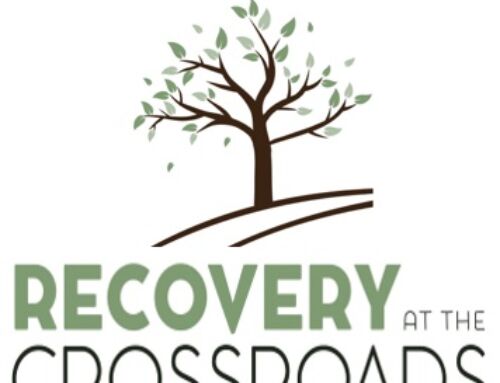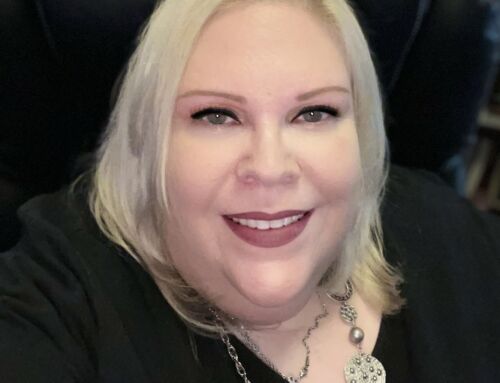Taking the step to seek help for substance use disorder is both brave and life-changing. While inpatient treatment may not be an option for everyone, outpatient rehab programs provide a flexible and supportive environment that can be highly effective for recovery. Whether you’re transitioning from a more intensive level of care or beginning your recovery journey in an outpatient setting, knowing what to expect can help you fully engage in the process and maximize your experience.
What Is Outpatient Rehab?
Outpatient rehab is a type of substance use treatment that allows individuals to receive comprehensive care while continuing to live at home and manage their daily responsibilities. Unlike residential or inpatient addiction treatment programs, where individuals reside in a treatment facility full-time, outpatient rehab offers the flexibility to receive professional therapy and support on a part-time schedule. Treatment sessions can be scheduled during the day or in the evenings, a setup often referred to as “rehab after work.” This approach allows you to keep working, attend school, and take care of personal or family obligations, all while staying committed to your recovery journey.
Who Can Benefit from Outpatient Addiction Treatment?
Outpatient rehab is ideal for people who have professional, familial or other obligations and who must balance their recovery with significant daily responsibilities. This type of treatment is designed to fit into your existing schedule, allowing you to seek help without having to pause your career or family obligations. With flexible options, including daytime or evening treatment sessions—outpatient programs make it possible to receive the care you need while continuing to manage your day-to-day life.
These programs provide the same comprehensive care as inpatient rehab, focusing on the physical, mental, and emotional aspects of addiction. Participants engage in a range of therapeutic activities, including one-on-one counseling, group sessions, and educational workshops, all geared towards helping you overcome substance use disorder.
Outpatient treatment is particularly suitable for those who:
- Have a supportive home environment: If you live in a stable and encouraging setting, outpatient rehab allows you to remain at home while accessing the necessary treatment, ensuring you stay connected with loved ones who can support your recovery.
- Need to continue working or studying: Outpatient programs offer the flexibility to keep up with your professional or academic responsibilities, so you don’t have to take extended leave from work or school to focus on your recovery.
- Parents: Inpatient treatment isn’t always feasible for parents. Outpatient treatment allows parents to stay active in their children’s daily lives.
- Are transitioning from inpatient care: For those who have completed a more intensive inpatient program, outpatient rehab can serve as a step-down option, providing ongoing support as you reenter your daily life.
Outpatient rehab offers a flexible and effective path to recovery, particularly for those who need to continue managing other aspects of their lives. It allows you to work on overcoming addiction while maintaining the stability and routine of your home, work, and personal life.
What to Expect in Outpatient Rehab: Crafting a Personalized Treatment Plan
When you begin an outpatient treatment program, the first step is a comprehensive assessment conducted by a team of healthcare professionals. This initial evaluation typically involves:
- Medical Evaluation: Your medical history is carefully reviewed, including any co-occurring mental health conditions. A physical examination is also conducted to identify any urgent health concerns that may need immediate attention.
- Mental Health Assessment: Your mental health is thoroughly evaluated, focusing on symptoms of depression, anxiety, or other conditions that may require attention throughout your treatment.
- Substance Use History: An in-depth review of your substance use is conducted, covering the types of substances you’ve used, as well as the duration and frequency of your usage.
Following this detailed assessment, a customized treatment plan is created specifically for you. This plan is designed to meet your unique needs and help you reach your recovery goals, all while considering your lifestyle, responsibilities, and overall well-being.

Outpatient treatment programs typically offer a variety of therapies and services to support your recovery. These often include:
- Individual Counseling Support: In one-on-one sessions with a licensed therapist, you’ll explore the root causes of your addiction, develop coping strategies, and address personal challenges. Techniques like cognitive behavioral therapy (CBT) and other evidence-based methods are frequently used to help you shift unhealthy thought patterns and behaviors.
- Supportive Group Therapy Sessions: Group therapy provides a space where you can connect with others who are going through similar experiences. Sharing stories, offering mutual support, and learning from the journeys of others can be deeply empowering and help build a sense of community.
- Therapy for Families: Since addiction impacts not only the individual but also their loved ones, family therapy focuses on healing relationships, improving communication, and educating family members about the recovery process. Involving family in your treatment can strengthen your support network and contribute to a more supportive home environment.
- Educational Programs: Outpatient rehab includes educational workshops that address topics such as relapse prevention, stress management, and making healthy lifestyle choices. These sessions provide the tools and knowledge needed to sustain long-term sobriety.
- Holistic Therapies: Practices like mindfulness meditation, yoga, art therapy, and music therapy are often integrated with traditional therapies. These holistic approaches to recovery can help reduce stress, boost emotional well-being, and enhance your overall recovery experience.
Outpatient Medication-Assisted Treatment (MAT)
For those dealing with opioid or alcohol dependence, medication-assisted treatment (MAT) can play a crucial role in an outpatient recovery plan. MAT combines FDA-approved medications—such as methadone, buprenorphine, or naltrexone—with counseling and behavioral therapies. These medications are designed to help reduce cravings, alleviate withdrawal symptoms, and support sustained recovery.
Your treatment team will assess whether MAT is suitable for your specific needs and will closely monitor your progress throughout the program to ensure its effectiveness.
The Advantages of Outpatient Rehab
Outpatient rehab offers several key benefits that make it an appealing choice for many:
- Flexibility: One of the biggest advantages of outpatient rehab is that it allows you to receive treatment while continuing with your daily routines. These programs are designed to integrate smoothly into your life without causing major disruptions.
- Cost-Effectiveness: Outpatient programs are typically less expensive than residential treatment options, making them more accessible to a wider range of people.
- Practical Application: Since you remain in your home environment during outpatient rehab, you can immediately put the strategies and skills you learn in therapy into practice in your everyday life.
- Confidentiality and Discretion: Outpatient rehab provides a level of privacy that allows you to attend therapy sessions while living at home, making it a good option for those who prefer to keep their treatment confidential and stay connected to their community.
- Smooth Transition: Outpatient rehab can act as a step-down from intensive inpatient care, helping you gradually adjust to everyday life while still receiving the necessary support and guidance to maintain your recovery.
Begin Your Journey to Lasting Recovery with Recovery at the Crossroads
At Recovery at the Crossroads in Blackwood, New Jersey, we recognize that each person’s path to sobriety is unique, and we’re here to support you every step of the way. Our outpatient rehab programs are crafted to provide people in the surrounding communities the flexibility and comprehensive needed to recover while managing everyday responsibilities. Whether you’re a professional seeking to balance work and treatment or someone in need of continued support after inpatient care, our dedicated team is here to help you achieve long-term recovery.
We also offer other levels of support including partial hospitalization and we can assist with those seeking inpatient treatment. Don’t wait to take the first step. Reach out to Recovery at the Crossroads today by calling 888-342-3881 to learn more about our outpatient treatment options or reach out to our staff online. Our compassionate team is ready to offer personalized care and a robust support network, empowering you to build a brighter future.



